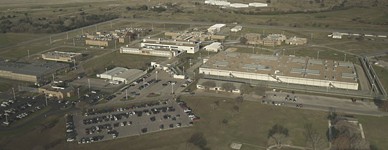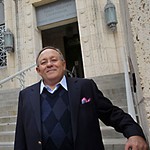UPDATED: One Step Closer to Preventing Wrongful Convictions
Measure gets nod on House floor
By Jordan Smith, 1:02PM, Tue. Apr. 23, 2013

A bill to study the causes of wrongful convictions in Texas passed through the House floor this morning – but not without several testy exchanges between lawmakers.
The post has been updated, below, with today's House floor vote tally.
The measure, House Bill 166, by Rep. Ruth Jones McClendon, D-San Antonio, would create the Timothy Cole Exoneration Review Commission, named for Cole who died in prison while serving time for a sexual assault he did not commit. The Commission would be tasked with reviewing criminal cases where there has been a formal exoneration in an attempt to find the root causes of the wrongful conviction and to make recommendations for avoiding future miscarriages of justice.
Backers of the measure have tried to move the bill through in previous sessions without success. This time around, with a wealth of bipartisan support, the measure is in much better shape. Nonetheless, backers of the measure this morning on the House floor were faced with a number of probing questions, mostly from Rep. Larry Phillips, R-Sherman, who took issue with various language within the measure: Why would the Commission not be subject to Sunset until 2025, he asked; why does the bill mention "wrongful execution" if this is about wrongful convictions, he wondered. An amendment by Rep. Jeff Leach, R-Plano, reduced the time to Sunset to eight years, in 2021. As for the wrongful execution language, Leach – who has signed on with Rep. Myra Crownover, R-Denton, as an author of the bill – said that the idea was to prevent all wrongful convictions. Indeed, among Texas' confirmed wrongful convictions are those who were sentenced to die, but who escaped that punishment – including Anthony Graves and Clarence Brandley.
Phillips also took exception to a provision that would allow courts in future proceedings to use findings of the commission – including whether judges or lawyers participated in misconduct leading to the conviction. "I don't understand why" if the bill is intended to "fix [problems in the system] and to go forward," why the Commission would be allowed to go back with "hindsight 20/20 to decide...to try to punish people," Phillips asked Rep. Joe Moody, D-El Paso, a former prosecutor who sits on the House Criminal Jurisprudence Committee, which passed the bill on to the House on a 7-1 vote. "I think that if you discover wrongful acts," during the course of a review, Moody replied, "that should be out in the public eye."
The measure passed on second reading on Tuesday and finally passed – moving on to the Senate – on a record vote of 115-28 with House Speaker Joe Straus present but not voting.
Got something to say on the subject? Send a letter to the editor.
A note to readers: Bold and uncensored, The Austin Chronicle has been Austin’s independent news source for over 40 years, expressing the community’s political and environmental concerns and supporting its active cultural scene. Now more than ever, we need your support to continue supplying Austin with independent, free press. If real news is important to you, please consider making a donation of $5, $10 or whatever you can afford, to help keep our journalism on stands.
Brant Bingamon, Jan. 26, 2021
Brant Bingamon, March 20, 2020
Richard Whittaker, Aug. 28, 2014
Richard Whittaker, June 24, 2014
May 22, 2014
Tim Cole, Legislature, 83rd Legislature, wrongful convictions, criminal justice, exoneration commission, innocence commission, Ruth Jones McClendon, Larry Phillips, Jeff Leach, Joe Moody, courts, cops












